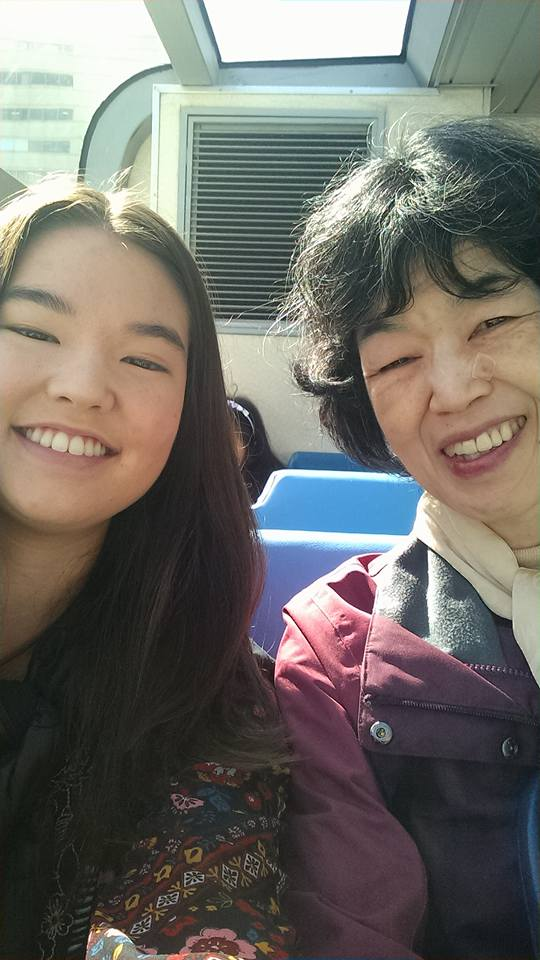Author: Emily Nelson
Location: Hirakata, Osaka, Japan
Last week, I was on Spring Break and had many opportunities to travel. In particular, I visited my aunt in Yokohama, a port town and Japan’s second largest city. Every time I’ve returned to Japan, I’ve always ridden the ferris wheel by the water and toured near the seaside. That day, we took a cruise called the Sea Bass, the sun glittering on the water. While traversing the sliver of ocean, I talked with my aunt. We’re able to converse well, as she takes weekly English classes. Curious, I decided to ask her if she uses English a lot at her job, to which she responded in the negative. I then inquired as to why she learns it at all, and she responded, “Oh, your existence.” This answer was completely unexpected to me; I was and still am so touched.

I suppose that I always assumed there was a better reason that my aunt has been learning English for the last 20 years. It’s common knowledge that learning another language is very difficult, especially when learned later in life. But the fact that my mom’s sister decided to take it up just for me is mind-blowing. I can’t imagine all the countless hours of dedication she put forward for my sake.

There is often speculation as to what love is, and I believe that real love requires action. Granted, it should be attributed to the giver’s ability and the situation, but anyhow, the word “love” is so ambiguous, but in this case, it carries so much personal value to me. I cannot think of anything else but that word to describe this situation. Perhaps that is what makes love more tangible-sacrifice. It begins with a feeling, but it is much more. Perhaps love’s presence is rendered visible by service, by sacrifice.

Of course, this is only one speculation of how love works. One could write endlessly about the topic, but I have comfort in knowing that I truly learned a small piece of it this day. One of my favorite phrases regarding love is, “We accept the love we think we deserve” (Stephen Chbosky). I think of this statement frequently, as it says so much in so little space. It suggests that the love we choose to reciprocate is a direct reflection of how we think of ourselves. Our perceived self-value is directly transposed into what we accept from the outside. I think this is why love can teach us so much about ourselves. When love is personified in action, it seems to multiply, creating something so much more valuable. I don’t think I can really describe what this valuable thing is, but I’m okay with not completely understanding.

I take comfort in knowing that my aunt has done so much for me, even being thousands of miles away for most of my life. She was the best aunt she could be, given the circumstances and my needs. And what do I do now? I welcome it with open arms and an open heart. And I’ll keep learning for her, too.

Leave a Reply